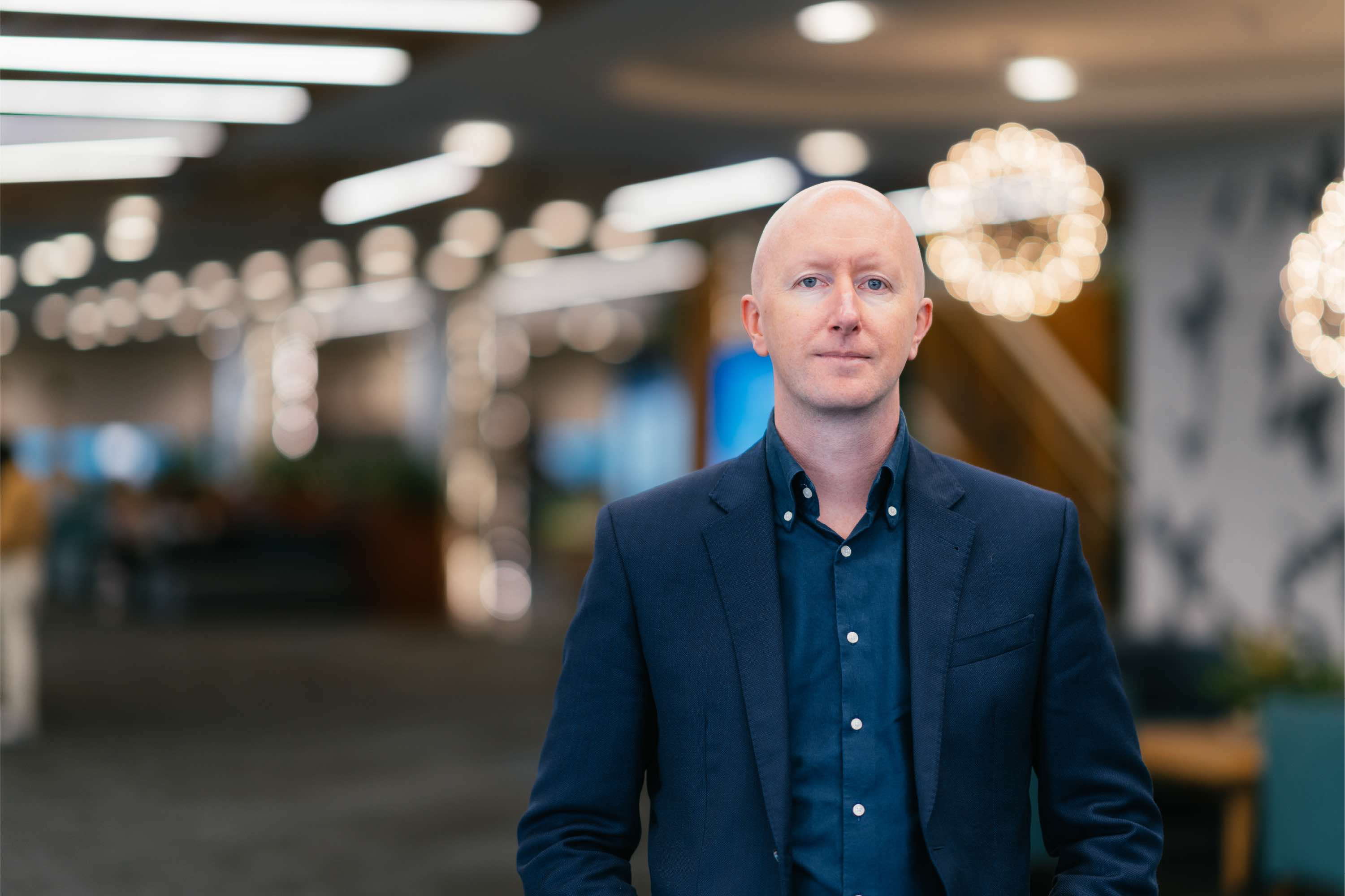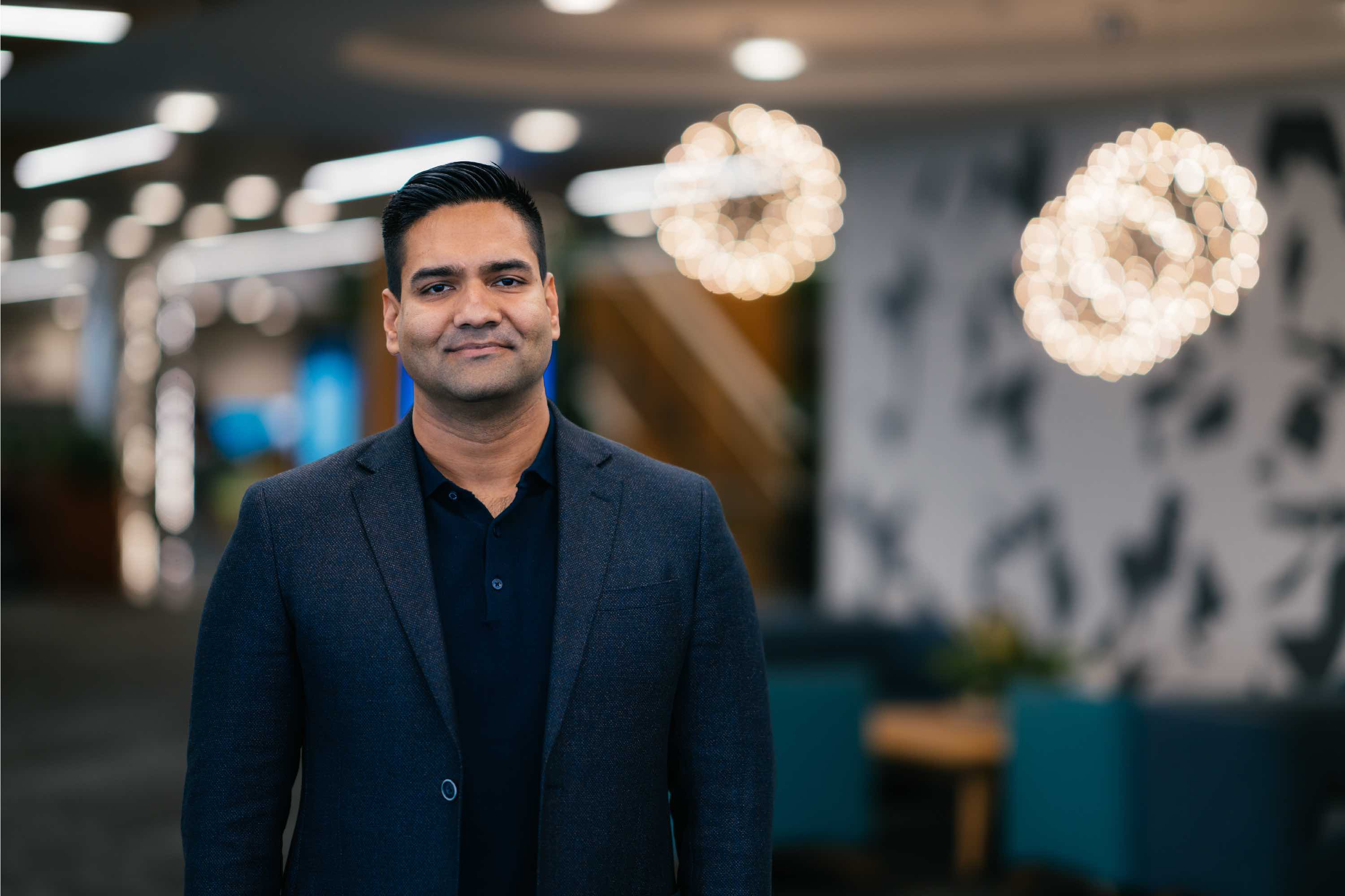Do you have a question? Want to learn more about our products and solutions, the latest career opportunities, or our events? We're here to help. Get in touch with us.
Do you have a question? Want to learn more about our products and solutions, the latest career opportunities, or our events? We're here to help. Get in touch with us.
We've received your message. One of our experts will be in touch with you soon.

For Joel Macfarlane, coding is in the blood.
“My father was a programmer before me and he taught me to code when I was about eight years old. So I spent my childhood coding apps and games; it was just a passion.”
Today, Joel remains among like minds. As Datacom Associate Director of Digital Engineering, he leads around 560 software professionals at the company who share that passion for technology.
The art of creating software from the ground up lies at the heart of Datacom, and is embedded in its heritage.
When the company was founded in 1965 in Christchurch, programmers were among its first hires. Software built by Datacom engineers has since powered some of New Zealand’s most critical infrastructure and biggest companies – and continues to do so.
Joel points to a couple of reasons why engineering capability is so important at Datacom.
“Firstly, we work with a lot of customers who operate in highly competitive industries. So to get a competitive advantage they need to innovate and create unique experiences for their own customers, and it’s their software that gives them that unique edge. You can’t buy differentiation off the shelf.”
“Secondly, we have such a wide variety of customers that in the case of some industries there’s no off-the-shelf software available that does what they need. So we have to build it.”

Joel shares the example of an app Datacom developed with multinational meat company Silver Fern Farms to manage how bobby calves are picked up from farms to be sold.
Prior to the app’s release in March 2021, North Island farmers put up a flag at the gate to signal calves were ready for pickup, while South Island farmers did this via text message. However, farmers could forget to put up the flag, or leave it up, while in the South Island they couldn't respond or alter details if things changed. This led to animal welfare issues and unnecessary transport movements.
The app not only created a single national booking system, it helped farmers manage bookings more efficiently and gave Silver Fern Farms real time visibility of calf numbers for better capacity planning.
“That solution just doesn’t exist anywhere else today. Engineering a solution like that allows us to focus on specific outcomes for the customer and create maximum impact for them.”
Joel has had 13 different jobs in tech, including running startups and managing corporate teams. He’s also had a couple of stints at Datacom, most recently returning in 2016 to run a team much smaller than it is today.
He cites a number of trends driving strong growth in Datacom’s engineering business, which now has teams spread across nine offices in New Zealand, Australia and the Philippines.
“Integration is one of the fastest growing parts of the business. You can’t write a new system now without it talking to 10 others, and customers realise that the pace at which they’re able to release new technology is all down to how well their integration platforms work.”
“We also now have 120 people across digital engineering working in our software testing business. In the past, software testing was slow and expensive, so a big focus is on automation to really speed things up.”
As Australasia’s largest homegrown tech company, Datacom’s size also adds to its strength.
“We have such a technically diverse team full of talent. Whether you’re looking at the leading edge of integration, QA automation, mobile or cloud native development we have a team that does it, including very senior people. And they’re people who can quickly move from one customer or even one industry to another.”
Sunny Katira agrees marrying the benefits of a large organisation – with its breadth and depth of talent and offerings – with an agile culture is part of Datacom’s secret sauce.
“One of our goals is to make every team feel like a startup; to be nimble, flexible and agile in taking new propositions to market,” says the Datacom Director of Application Services.
“From our customers’ perspective it means they access the latest and greatest technology along with the broader benefits of engaging with a large organisation.”

As an example, Sunny points to Datacom’s hybrid agile squads, where a squad of up to seven Datacom specialists will work alongside a customer’s staff in a single development team.
“Gone are the days when the customer says ‘this is what we want you to build for us and please send the package back’. Today, development is more collaborative. When we combine a customer’s domain and company knowledge with our technical expertise, you create much greater velocity.”
Squads have been successfully deployed in companies like EROAD, where Datacom staff joined hybrid agile product development squads on an ongoing basis, with the team flexing in size as EROAD’s requirements changed.
EROAD, which automates the management, purchase and display of road user licences, credits the approach with helping it get products to market faster – a key driver of the firm’s financial performance.
Originally trained as a software engineer, Sunny has worked in a range of roles and companies in the tech sector, including Datacom for the past 11 years.
That’s “a lifetime in tech,” he admits, however, the scale and culture of Datacom means he’s effectively had a new role every 18 months.
He began as an engagement manager looking after customer accounts and has since held roles including General Manager of Software and Cloud Solutions, Associate Director of Software Solutions, and Head of Professional Services in New Zealand.
In his current role he now leads around 1,250 staff across New Zealand and Australia, including Datacom’s software engineering and consulting teams.
“Personally, every time I’ve put my hand up at Datacom, someone has given me an opportunity. Datacom has an incredible culture that allows people to try their hand at so many different things and, even if they fail sometimes, to learn from their mistakes and support them.”
“The other thing that’s unique about Datacom is the variety of work – the sheer number of cool projects our staff engage in. You could be based in Hamilton or Auckland and working for a company based in Australia or the US that’s one of the biggest in its sector. It’s amazing.”